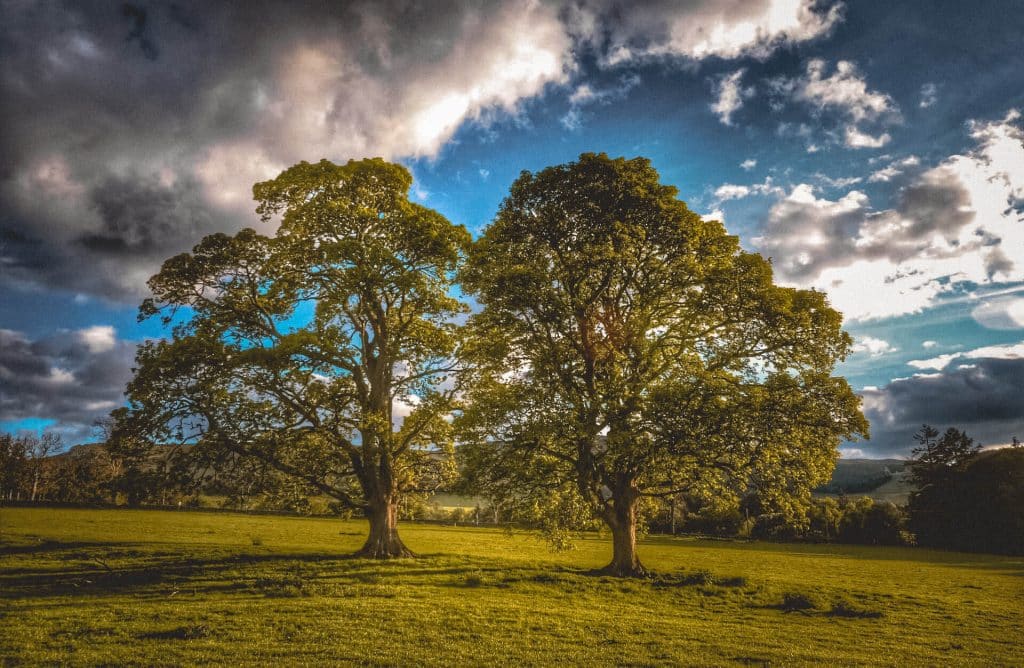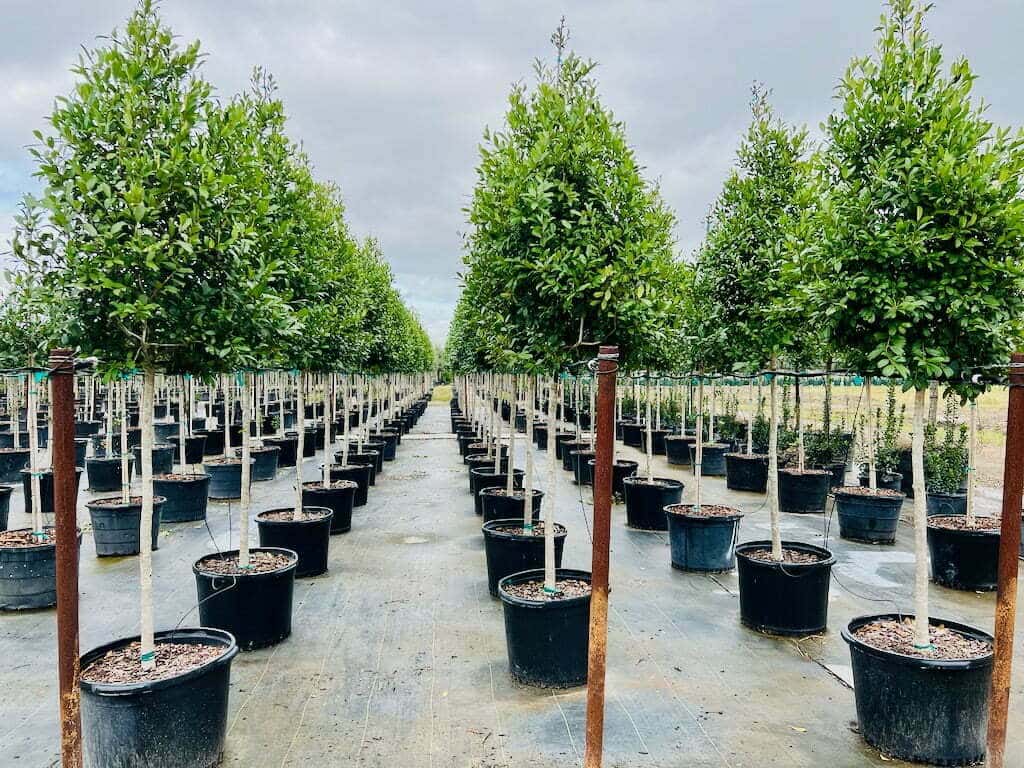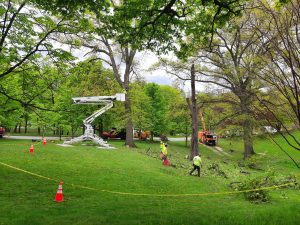Trees are commonly said to constitute the Earth’s lungs, and for good cause. Their significance goes far beyond their visual appeal, as they perform an essential role in preserving life on our planet. Understanding the importance of trees is more important than ever in this day and age of growing urbanization and environmental damage.
Welcome to Houston Heights Tree Service’s complete introduction to the importance of trees. In this post, we will look at why are trees important. From their role in climate change mitigation to their impact on mental and physical health, trees are priceless assets that require our full attention and care. Join us as we explore the complex link between humans and trees, discovering their enormous impact on our lives and the world around us. Through knowledge and respect, we may collaborate to create a sustainable future for future generations.
Why are trees important?
The Environmental Benefits of Trees
Trees provide significant environmental advantages, making them essential components of our ecosystem. For starters, trees are biodiversity champions, giving shelter and nutrition to many plant, animal, and microorganismal species. Their presence promotes a delicate web of life, supporting the health and resilience of ecosystems around the planet. Trees also act as formidable warriors against climate change through the process of carbon sequestration. Trees absorb carbon dioxide from the atmosphere via photosynthesis, effectively lowering greenhouse gas levels and limiting the effects of global warming. Furthermore, trees serve as natural air filters, removing toxins and particulates from the air we breathe. Their leafy canopies capture harmful pollutants and release oxygen, thereby improving air quality and creating healthier living conditions for humans and wildlife. In essence, trees are silent protectors of our planet, working ceaselessly to maintain ecological balance and the well-being of all living things. Understanding and valuing their environmental contributions is critical to ensuring the planet’s health for future generations.
The Importance of Trees for Human Health
Trees are important for human health for reasons other than their aesthetic appeal. They provide a variety of real benefits. To begin, trees play an important part in urban heat island reduction by providing shade and cooling benefits that serve to relieve the searing temperatures in urban areas. This not only increases comfort, but also lowers the risk of heat-related illnesses during the hot summer months.

Furthermore, access to green spaces and tree-covered areas has been related to significant mental health advantages. Spending time in nature has been found to reduce stress, anxiety, and depression, as well as improve mood and cognition. Furthermore, trees improve physical health by reducing the effects of air pollution. Trees operate as natural air filters, removing hazardous pollutants from the air including nitrogen dioxide and particulate matter, which are known to aggravate respiratory disorders and cardiovascular diseases. Overall, the presence of trees in our environment is critical for promoting overall well-being and building healthier, happier societies.
Community and Societal Benefits of Trees
Trees provide several community and societal benefits that improve the general health of neighbourhoods and metropolitan areas. For starters, trees have economic importance because they increase property values, attract businesses, and boost tourism. Studies have found that tree-lined streets and green spaces can boost home prices by up to 20%. Homes with “excellent” landscaping often sell for 6–7% more than those with “good” landscaping. Upgrading landscaping from “average” to “good” quality can result in a 4-5% rise in house value. When it comes to selling, landscaping can provide a stunning 100-200% return on investment. This outperforms other home renovation projects; for example, kitchen remodelling returns 75-125%, whereas bathroom remodelling returns 20-120%.
The Council of Tree and Landscape Appraisers estimates that the value of a mature tree is between $1,000 and $10,000. Almost all appraisers (99%) think that landscaping improves the appearance of real estate. Furthermore, 98% of realtors believe that mature trees have a considerable impact on the saleability of homes priced above $250,000, with a similar effect reported for homes sold below $150,000.
Furthermore, trees foster social cohesiveness by creating inviting gathering places for communities to unite. Parks, tree-lined boulevards, and urban forests provide possibilities for recreation, relaxation, and social interaction while instilling a sense of community pride and belonging.
Furthermore, trees provide educational possibilities, including important materials for environmental education and outdoor learning activities. Schools, universities, and community organizations can all use trees to teach kids about ecology, biology, and environmental stewardship.
Overall, the presence of trees strengthens society by improving quality of life, creating social relationships, and instilling residents with a feeling of environmental responsibility. By investing in tree planting and care projects, communities may reap the myriad benefits that trees provide for future generations.
Related Posts:
Personal & Spiritual Value of Trees
Beyond their environmental and economic importance, trees have a deep psychological and spiritual meaning for many people. For some, trees represent strength, tenacity, and endurance, providing inspiration and solace during difficult times. The enduring character of trees, which withstand storms and remain tall over time, echoes concepts of personal development and inner fortitude. Furthermore, trees provide for connection with nature and introspection. Many people find refuge and tranquilly in spending time among the woods, whether through forest bathing, meditation, or simply admiring the beauty of a forested setting. Trees have a special potential to generate feelings of surprise and awe, building a stronger connection to the natural world and the cycles of life.
The Role of Houston Heights Tree Service
Houston Heights Tree Service is an important player in encouraging tree health, preservation, and sustainability in the Houston area. Our team of arborists and tree care professionals is committed to excellence and environmental stewardship, and we offer a comprehensive range of services to satisfy the different needs of our clients and the community. From tree pruning and trimming to removal and emergency storm damage response, Houston Heights Tree Service provides comprehensive solutions to protect the health and longevity of trees in urban and suburban areas. Our tree care experience, along with cutting-edge equipment and ecological procedures, enables us to achieve exceptional outcomes while reducing environmental effect. Aside from our main services, Houston Heights Tree Service is committed to increasing awareness about the importance of trees and encouraging environmental education projects in the community. We try to provide residents with the knowledge and resources they need to become urban forest stewards through outreach programs, workshops, and partnerships with local groups. In essence, Houston Heights Tree Service is more than just a tree care company; it is also a champion for the preservation and sustainability of our natural surroundings.
FAQS
How do trees affect human health?
Trees improve air quality by filtering pollutants, reduce stress, and boost mental health when they are present in green spaces.
What economic worth do trees have?
Trees may boost property values, save energy bills by providing shade, and benefit local economies through tourism and recreation.
Do trees provide societal benefits?
Yes, trees promote communal cohesion by providing opportunities for recreation and social interaction, which contribute to a sense of belonging and well-being.
What impact do trees have on climate change?
Trees play an important part in climate change mitigation because they absorb carbon dioxide and assist to regulate world temperatures.
Is there any cultural or spiritual significance to trees?
Yes, trees have cultural significance in many communities, representing strength, tenacity, and a link to nature. They are highly respected in spiritual traditions due to their beauty and symbolic of life and regeneration.
Conclusion
In conclusion, the value of trees cannot be emphasized. They are vital components of our environment, delivering numerous benefits that contribute to the health and well-being of our planet and its inhabitants. Trees enrich our lives in a variety of ways, from reducing climate change and increasing air quality to positively impacting human health and community cohesion. As Earth’s guardians, we must acknowledge and conserve trees’ invaluable contributions. By lobbying for tree preservation, replanting efforts, and incorporating green spaces into urban development, we can assure a sustainable future for future generations. Let us continue to admire and appreciate trees’ beauty and significance, seeing them as valuable allies in our drive for a better, happier Earth. We can work together to make the planet a greener and more sustainable place, where trees thrive and humans coexist with nature.




